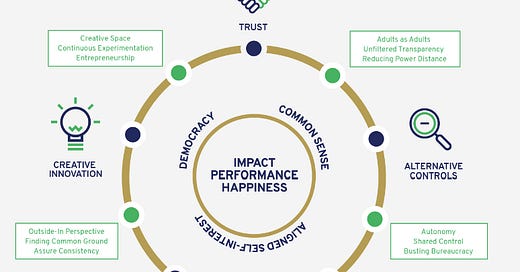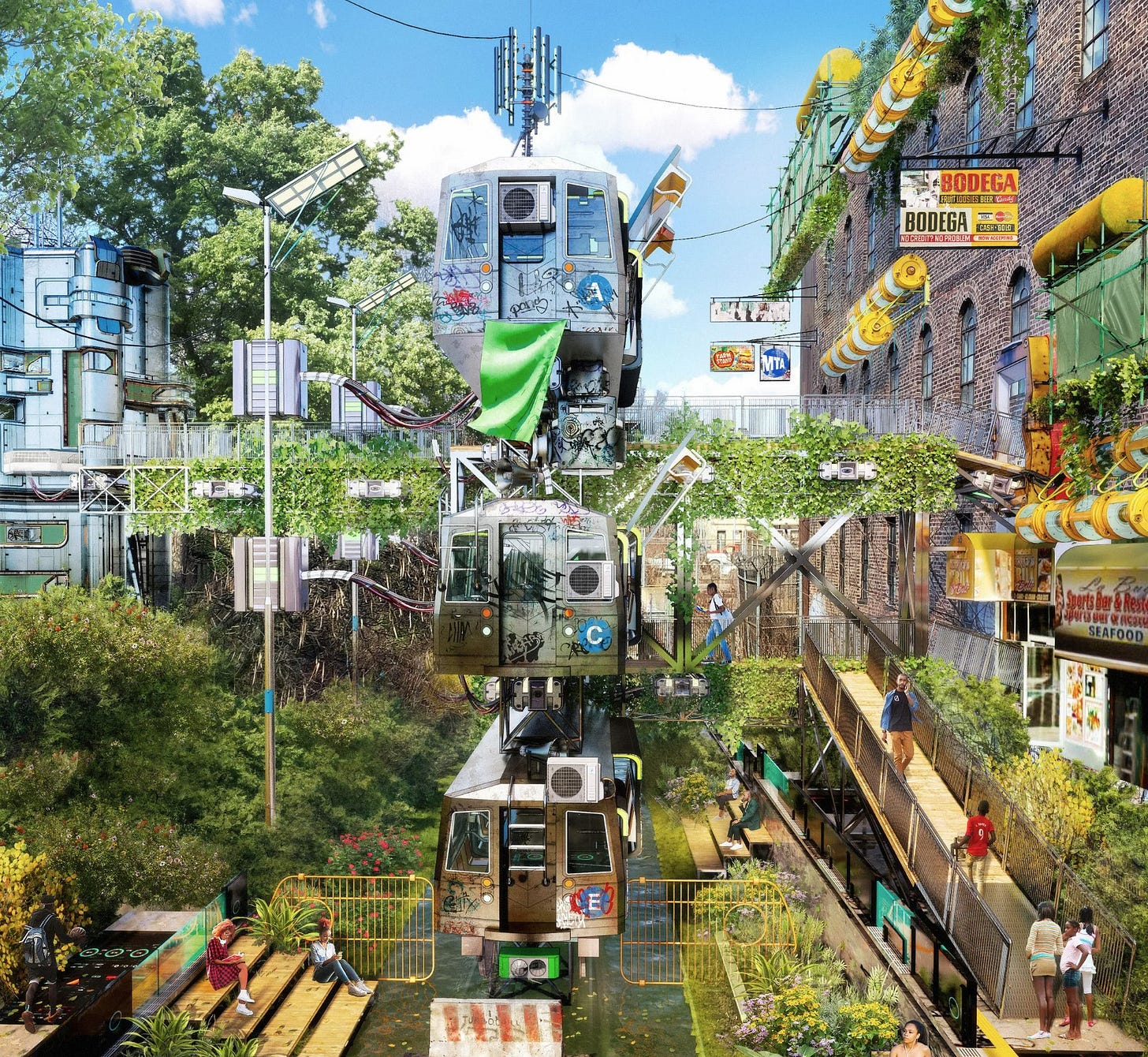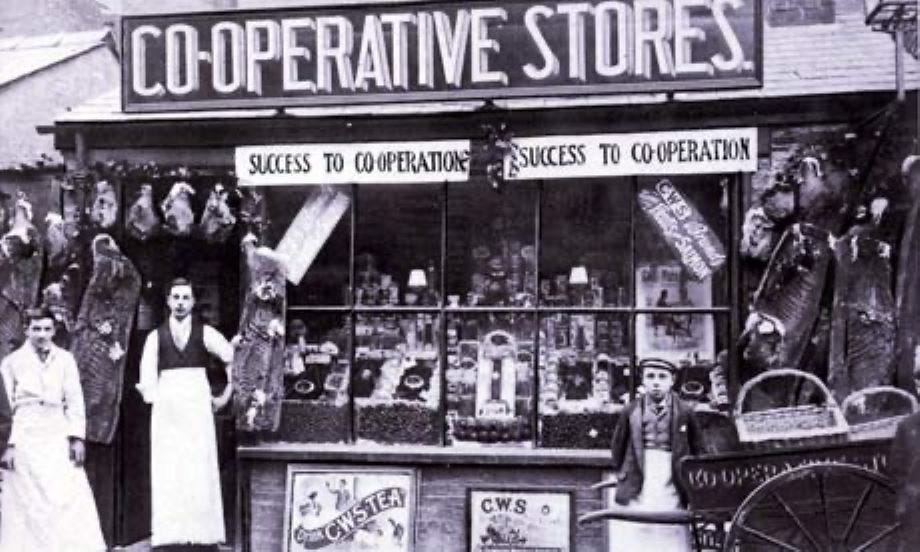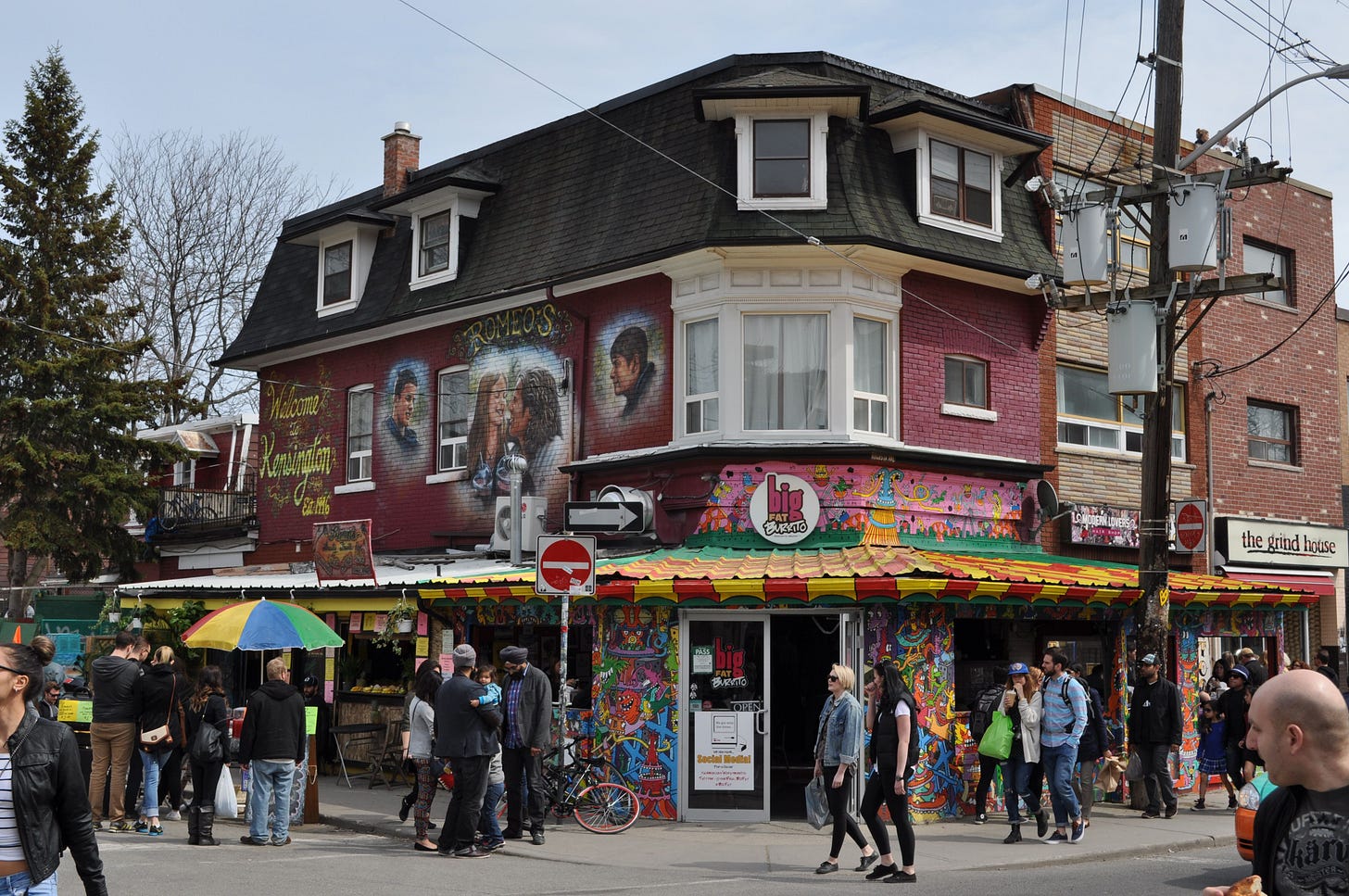Solarpunk enterprise ideas
A range of ventures that might make up a deliciously sustainable future
This update we’re bringing you a guest post from our fellow solarpunk
I call myself a ‘TechnoWizard’ or ‘TechnoShaman’ because I like to imagine technologies that feel magical and empowering rather than exploitative and reductive.
I’ve been working on an extensive description of what better futures could look like in my Journal of TechnoWizardry and audiojournal. It’s an absolute pleasure to be able share some of those high level ideas with you fans of SolarPunk Stories.
The best way to envision something new is to couch it in something familiar. I think a big reason why many folks can’t imagine, or even believe, in a radically better future is because they can’t see how it can lead from where we are today, or what day-to-day life would be like.
[Near future more rooted solarpunk IMAGE: Olalekan Jeyifous]
This has inspired me to explore some concepts for what the future of business could look like if they weren’t centered on profit to the exclusion of everything else, or even if we had an economy that did not run on monetary currency at all (such as gift economies of old). Throughout this article, I want to visualize radical futures where the companies, organizations, and economy at large exist to actually serve everyday people, and have the correct incentives to reinforce those ideal behaviors.
To be clear this is not an exhaustive list of potential enterprises. I’m also not just sharing business ideas in the narrow concept of ‘this company is doing good’, instead, I want to give readers a few ideas of what can be put in place to foster better enterprises of all types. And remember! An ‘enterprise’ is not just a business, but any way in which people come together to solve a complex problem.
To borrow from the Zapatistas, the overarching idea here is to paint a picture of a world where many worlds exist. For me, that’s super solarpunk.
Without further ado, let’s start with some current-day examples that already exist!
Sharing is caring
Co-operatives are some of the oldest and most successful alternatives to typical businesses. Since their foundation during the industrial revolution in the 1800s, they have served as a means for workers to come together and share resources. This allowed them to avoid poverty brought on by technologies and profit-first businesses that devalued their skills.
[Let’s all pop to the co-op IMAGE: The Cooperative Group]
In fact, many of the first consumer banks and credit unions started as co-ops. Today, there are over 3 million co-ops, with a total of 1.2 billion members! That’s 12% of humanity!
The largest 300 cooperatives and mutuals report a total turnover of 2,146 billion USD ($2.1 Trillion), according to the World Cooperative Monitor (2020).
Co-ops such as the Mondragon Corporation in Spain has been worker-owned since the 1950s, and functions as a network of co-operatives where workers all have an equal say in everything from salaries to hours to products and so on.
These facts and figures prove that alternatives to the current hierarchical, profit-first enterprises are not just possible, but are already more than viable.
Firing the boss
SEMCO is a Brazilian company that pioneered the concept of managing without managers by embracing worker autonomy, flattening most levels of management, and encouraging democratic industrial decision making. They now teach this in their Semco Institute classes which have been used by hundreds of companies across the world, such as in India, Argentina, and more.
[Horizontally Happy IMAGE: SEMCO Style Institute]
Though this was initiated top-down, it shows how managerial roles can be often redundant at best, and just wasteful at worst. Their success shows the power of democratic work spaces (and education in general).
Ricardo Semler, the founder, has been on a personal mission to foster a culture of ‘wisdom’ based on his experiences for decades.
Trust in the people
Land trusts are making a big comeback lately too. One example is the Kensington Market Community Land Trust, who are fighting against privatization of their area and rising housing costs by buying up property as a community. They then lease it back out at a lower, affordable rate to locals. They do all this while giving said locals an ability to vote on how to use the money to better their community for everyone.
[Keeping it in the neighborhood IMAGE: Kensington Market, Toronto]
The guiding force for this was not just to keep housing affordable, but to keep the vibrant culture alive through the diverse small local businesses the area is known for. As this video points out though a big challenge is raising the capital in the first place to buy the property with.
In my city of Atlanta, in addition to a local land trust, there is a new effort by a for-profit organization called The Guild to do something similar through their Community Stewardship Trust. They are not just tackling housing, but also food access, local business support, and more by rezoning areas to create mixed-use communities that are owned by the community, allowing local residents to receive dividends from the business in the community.
[Put your hands up for Atlanta IMAGE: The Guild]
Mixed-use zoning that allows residential and commercial lots on the same block is illegal in many places across America. This is due to the proliferation of single-family residential zoning laws which were lobbied for by auto manufacturers to create car dependency. Yes, this is real.
Free enterprises
Finally, Really Really Free Markets and Free Stores (ie flea markets without prices) show how you really can have a market that does not feature any form of currency. Just the unfiltered, simple, and beautiful mechanism of giving and taking of goods and services to help other people as well as give old things new life.
[Help yourself IMAGE The Freestore Project.com]
There are many many other interesting initiatives out there like library economies, hyperlocal currencies, homebrew/ low-tech tools, and open source modding in general.
In the follow up to this article, I’d love to share some of my own radical ideas for what solarpunk enterprises could look like, from singular business ideas to whole societal movements. Stay tuned for more.
Until then, please feel free to share your thoughts on these or other ideas for solarpunk enterprises in the comments below.
Until Next Time
That's all for this update. If you like what we’re trying to do here and know someone else who might do too then please like, comment and share.
See you in the sunshine,
Alex Holland
Founder, SolarPunk Stories











Ah this list is so good! I'm from Toronto and Kensigton has always been a very well known, unique neighbourhood, a pocket community in the middle of downtown. I did not know about their community initiative, it's amazing to hear and feels like such an organic evolution of this area. This is a true solarpunk evolution. Especially in a city that has been completely taken over and ruined by real estate greed, it's so good to hear. I really hope it succeeds.